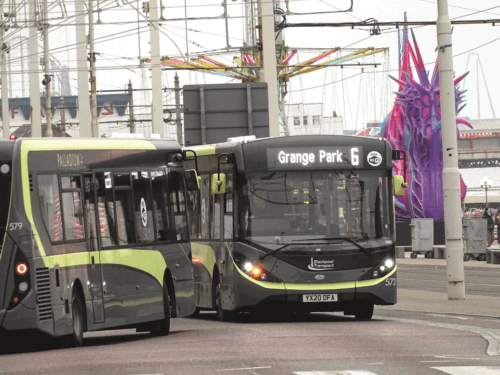
Blackpool Council’s Shareholder Committee has approved an £8m loan towards the electric bus scheme
A multi-million pound loan has been approved to enable the conversion of Blackpool’s bus fleet to run on electricity after the operator’s owner Blackpool Council agreed to lend £8m to Blackpool Transport from its business loans fund. The money will be used to upgrade the company’s Rigby Road depot by installing the infrastructure required for electric buses, including charging points. The operator has already received £20m towards the cost of the project after a successful bid to the Department for Transport’s Zero Emission Bus Regional Area (ZEBRA) fund.
Blackpool Transport Managing Director Jane Cole the Blackpool Gazette: “The approval of the loan is an integral step in our endeavours to become the most sustainable, reliable and environmentally friendly mode of travel across the Fylde Coast. We are very appreciative for the support of Blackpool Council, helping us make the first steps to modernise our Rigby Road depot and have it ready for the first electric buses to arrive in Blackpool.”
The council’s Shareholder Committee approved the £8m loan towards the scheme at its meeting in December. It is proposed to introduce an initial 105 new vehicles and charging points over two initial procurement tranches, with a final 10 vehicles following once operating conditions become clearer.
A report to the committee set out a raft of reasons for converting the fleet to electric power, including increasing diesel costs, and added that there is potential for an increase in demand for public transport due to a number of regeneration schemes in the town centre. The change will also support the council’s climate emergency policy to achieve net zero carbon emissions by 2030.
The council added: “The decision to approve the application for a loan was based on the recommendation of the council’s loans panel and the application met the criteria outlined in the council’s business loans fund.”

